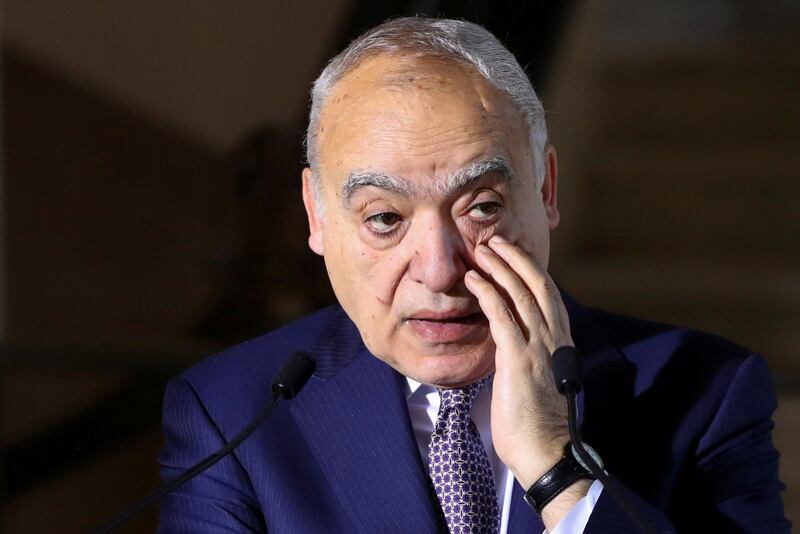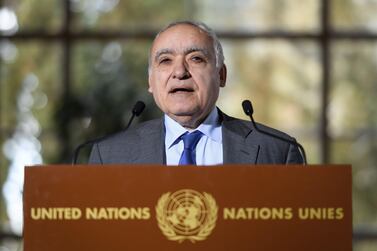The public resignation of the UN’s special envoy to Libya Ghassan Salame comes at a critical juncture in Libya’s bitter civil war, throwing peace talks in the North African country into further uncertainty.
Mr Salame, a former minister of culture in Lebanon, cited stress and ill health as the key motivators behind his resignation request. He said he had made efforts during his tenure as the head of the UN’s Support Mission in Libya (UNSMIL) to unite the country and curb outside interference.
The special envoy’s announcement that he had asked to step down from his role comes at a time when Libya’s internecine conflict is becoming more complicated rather than less. He leaves the country in an even more entrenched conflict than when he found it.
Since the beginning of Libyan National Army (LNA) head Field Marshal Khalifa Hafter’s offensive on Tripoli in April 2019, the battle between eastern and western factions has become more intractable.
International powers are now more involved in the conflict that at any time since the 2011 Nato intervention and 2011 protests that toppled 40-year ruled Muammar Al Qaddafi.
Following Mr Salame’s announcement on Twitter, the UN has emphasised the need for a smooth transition. UN Secretary General Antonio Guterres is set to discuss with the former UNSMIL chief what their next moves will be.
Chatham House Senior Research Fellow Tim Eaton has called the timing of Mr Salame’s resignation “critical”, explaining that in Libya now “the stage is set for escalation”.
It took months to replace Mr Salame’s predecessor, German diplomat Martin Kobler, with multiple vetoes at the United Nations. “Libya doesn’t have that kind of time. This gives more opportunity to those seeking a military solution,” Mr Eaton wrote on Twitter.
Any obvious candidates to replace Mr Salame, such as the UN’s deputy special representative in Libya, US diplomat Stephanie Williams, face clear obstacles. During the process to replace Mr Kobler, another American candidate was vetoed by Russia.
Although Mr Salame’s name appeared at the end of a relatively long list to take the difficult UNSMIL job, expectations were high when he was appointed in 2017. Latterly, particularly in Libya, his lack of progress has become a point of exasperation. His resignation after two frustrating years was not an overwhelming shock.
In his tweet on Monday, Mr Salame referred to January’s Berlin summit on Libya and a subsequent UN Security Council resolution which endorsed those conclusions. He will hope these recent achievements stand as his legacy. However, the modest gains made in Germany have already begun to unravel.
At the close of the summit, the outgoing UNSMIL chief called for international powers to end their interference in Libya and to recommit to the 2011 weapons embargo placed on the country. In the following weeks, troops and weapons have continued to flow as normal.
Turkish President Recep Tayyip Erdogan has confirmed the presence of Syrian fighters in Libya, dispatched by Ankara. Last month, authorities in Italy arrested the captain of a Lebanese cargo ship that is believed to have carried tanks, rockets and other weapons from Turkey to Libya.
Ankara has alleged that Russia sent 2,500 mercenaries from a private security company to fight in Libya. The claims are denied by Moscow.
From the outset, the Berlin talks’ failure to turn a truce in Tripoli into a lasting ceasefire was conspicuous. Geneva talks at a military level, meant to solidify the peace in the aftermath, have also faltered with no conclusions reached when the opposing sides have met.






